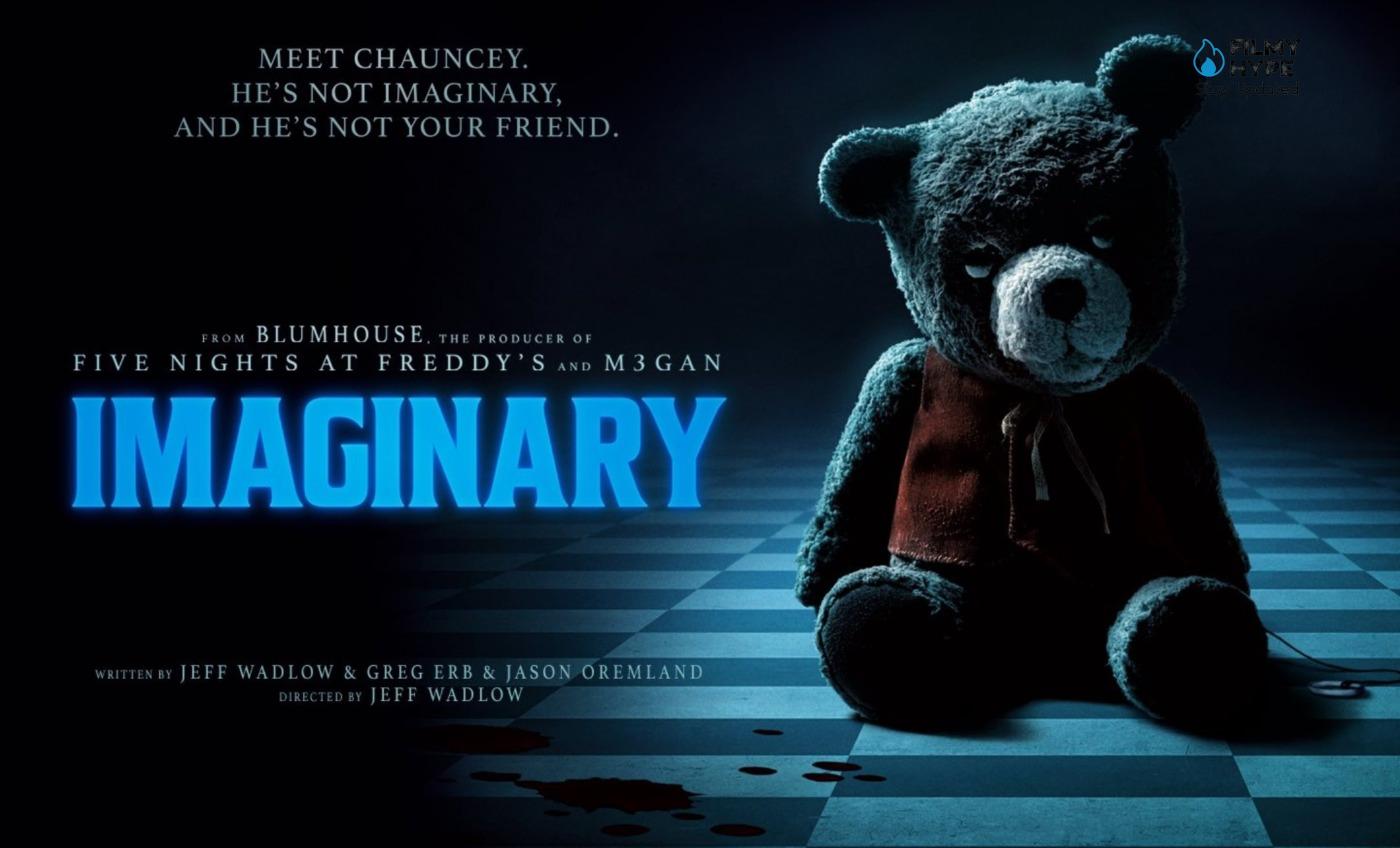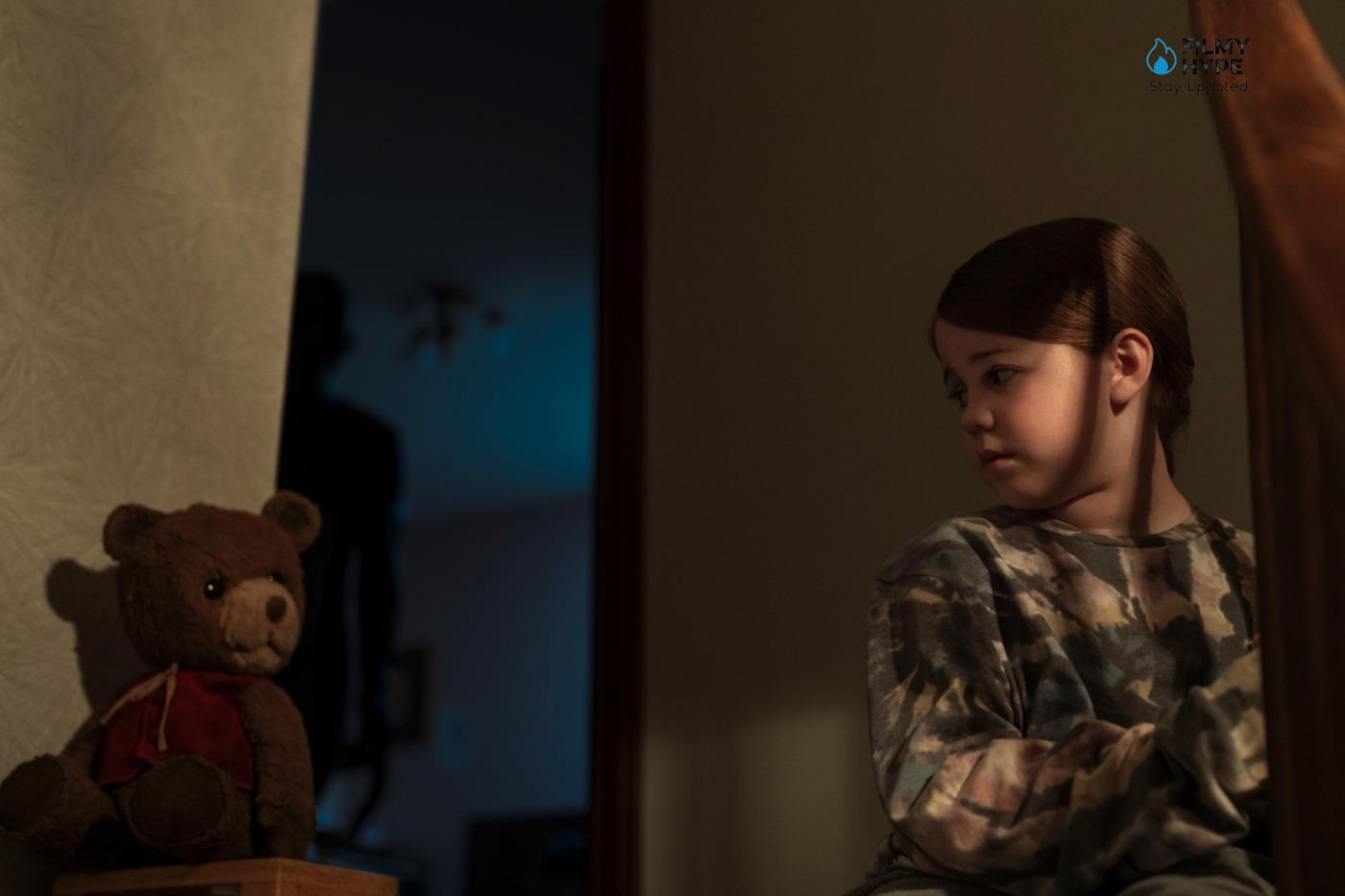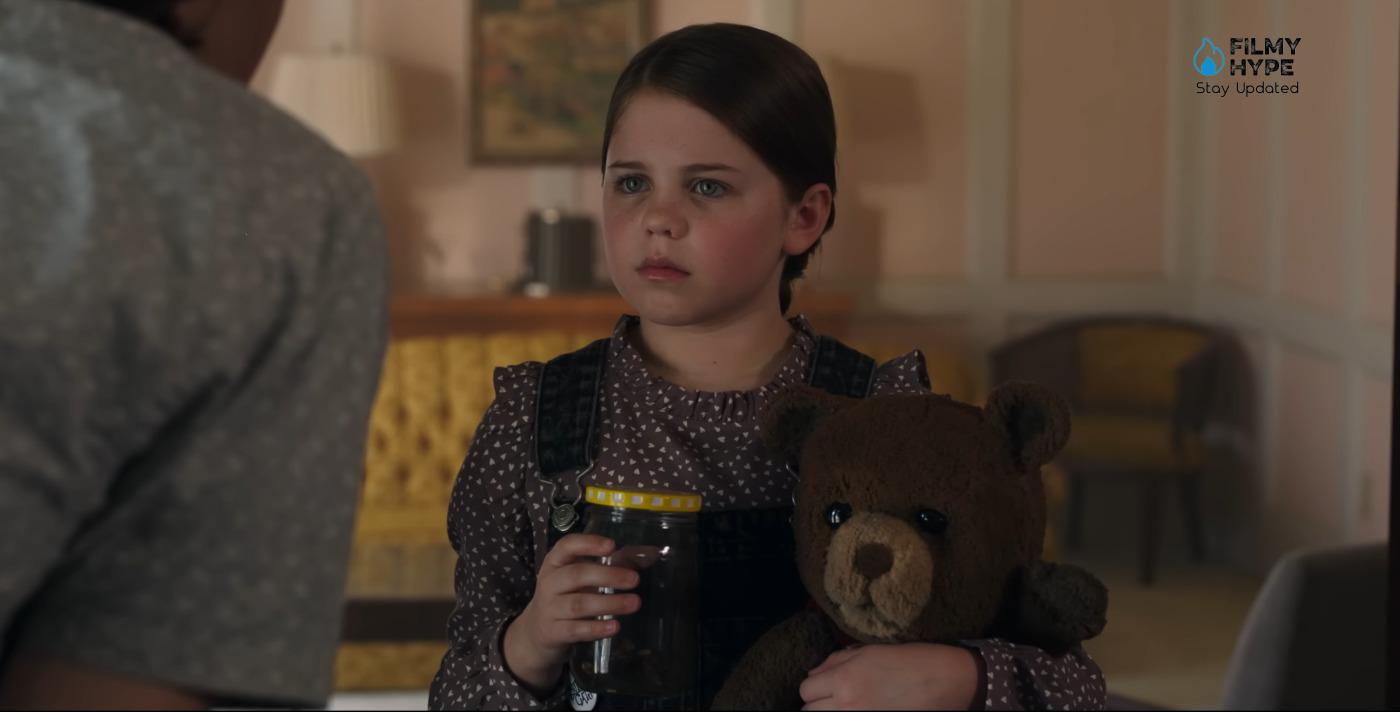Imaginary Movie Review: The Idea of Exploiting the Infantile Psyche and its Abstract Delicacy
Stars: DeWanda Wise, Taegen Burns, Pyper Braun
Director: Jeff Wadlow
Filmyhype.com Ratings: 3/5 (three stars)
Last, in the wave of horror films of recent times, Jeff Wadlow’s Imaginary Movie could be the worst among the various ones recently produced by Blumhouse (Five Nights at Freddy’s, M3gan, and many others, also on the way). A classic story, with a suggestive twist on the theme of imaginary friends, in cinemas. The darkest hour is not for children but for horror lovers, judging by the results. If Winnie-the-Pooh – Blood and Honey was the winner of the latest Razzie Awards as the worst film of the year, it’s because Imaginary Movie hadn’t been seen yet. Directed by Jeff Wadlow, it is probably one of the lowest points of the glorious Blumhouse (even worse than the recent Night Swim, which was already below the level of decency).

One of the greatest weapons available to children is certainly their imagination. Unlike the more typically adult reasoning, those belonging to the youngest age tend to translate the world around them using a filter that does not take into account common rules or daily limits and obligations, re-elaborating the information available in a completely unpredictable and extremely creative. In doing this, that particular process of exclusion becomes central which at the same time detaches and filters what happens in reality, in a subtle and fundamental imaginative balance, both in the growth and learning phases. In Imaginary Movie, the new horror film signed by Blumhouse Productions and directed by Jeff Wadlow, a process of this kind immediately becomes central and fundamental in the direct and indirect readings of the narrative material on the screen.
Imaginary Movie Review: The Story Plot
At the center of Imaginary Movie, we find the story of Jessica (played by DeWanda Wise), a girl who is trying to find some serenity in her life and in that of her partner and his daughters. Both she and the girls she acts as stepmothers have experienced a difficult family past first-hand, so she decided to exploit her experience in this sense to try to build something better with them, in a place from her childhood that she remembers. as sure. The house in which she grew up, however, seems to hide something deep in her past, a particular presence waiting in the dark, in the basement of a past clouded by adulthood and everything that comes with it.

Jessica, by profession, is a writer and illustrator specializing in children’s entertainment with a series of illustrated stories she has written, demonstrating a certain sensitivity and deep imagination transformed into a job that allows her to live by creating. When the family moves into the new house, Alice (played by Pyper Braun), the youngest of the two daughters, finds an old teddy bear in the cellar, abandoned and dusty for who knows how long. The connection between the two, also thanks to the little girl’s previous family problems, produces an indissoluble bond, transforming that toy into a real imaginary friend with an increasingly cumbersome and unpredictable presence. Teddy, this is the name of the soft toy, is not like other toy bears…
Imaginary Movie Review and Analysis
The surprising thing about Imaginary Movie is how much of its total running time it spends explaining things to its viewers. The relationships between characters are all about explaining to each other what happened before, how they feel now, and what they will do next. There are characters like the babysitter who appear when an extra moment of explanation is needed of the logic and rules that govern the dark entity that threatens Alice and Jessica. Imaginary Movie takes so long to get to the point and when it does it decides to explain so much of it that the pure horror component doesn’t take up more than about twenty minutes. Few, very few scares. It was Jeff Wadlow himself who explained that he wanted to recall the cassette horror films of the ’80s, where the horror component was continually mixed with the fantastic and mystery. This can be understood from the aesthetics chosen for the final transformation of Alice’s imaginary friend, which recalls certain analog puppets from children’s genre television of that era.
The problem with Imaginary Movie is that in the face of an elementary, lightning-fast, highly effective idea – what would happen if a child’s imaginary friend wanted to harm him, feeding on his imagination? – life is unnecessarily complicated with a lot of… one could almost call it bureaucratic drift. Events in Imaginary Movie are continually paused to set boundaries, add information, and establish the rules necessary to make something happen. In the world of Imaginary, Evil, in teddy bear format, sits calmly in the arms of a little girl like the dustiest of bureaucrats, waiting for all the preliminary conditions to be met before acting. In addition to Wadlow, the screenplay is co-written by Greg Erb and Jason Oremland. The impression is that all 3 added material and ideas, without bothering to coordinate with what the other two did, let alone discarding what was redundant and unnecessary. An example is the development of the character of Jessica’s ex-babysitter, who at the end reveals to us that she had already visited the place where the last scenes of the film take place.

How she got there and how she got out, however, is something the film refuses to elaborate on. Sometimes the film turns out to be a little lazy, or insists on components that it would do well to eliminate: why continually quote Pixar’s Inside Out, ending up underlining how the inspiration for this film is derivative, perhaps from a drink in the office in which a at some point someone shouted: “oh oh oh what if we made a film like Inside Out’s imaginary friend but he’s bad?” and the others replied “but you’re a genius!”. The screenplay seems to have been written in one go by three people who don’t speak to each other and with no one who has then reread and tidied it up, leaving many redundancies and inconsistencies to confuse the viewer. Why, for example, waste time introducing a partner and father of the protagonists who are immediately sent unceremoniously away from home, canceling his presence?
However, Imaginary is not interested in a healthy economy of the story, in an internal coherence that makes the story more effective. Instead, he likes to pile together as many ideas as possible, even if they conflict with each other. His is a sort of narrative maximalism that forces the interpreters involved to give life to characters who spend most of their time enumerating infinite rules of the game rather than playing. Starting from the personal fabric of its characters, Imaginary Movie is committed to building a series of reflections that go beyond their appearances, examining the very theme of family and the impact that some family problems can have on people, especially children. Both Jessica and her goddaughters come from problematic private environments, where parental dynamics and limits have inevitably impacted their innocence, finding the only possible defense weapon in their imagination.
This is something that Jeff Wadlow’s film wants to reflect on, exploring childhood psychological dynamics and then transforming them into something that goes far beyond any possible and imaginable logic. Why should a child create an imaginary friend to talk to and relate to daily? What if it was simply a defense mechanism, perhaps unconscious, through which to deny and deny oneself the daily difficulties within one’s own home? Here a simple and perhaps even common element takes on a relevance that is first creative and expressive and then profoundly psychological, indirectly telling something that perhaps not everyone knows about younger people. Imaginary Movie puts together the pieces of a certainly not easy situation, inserting the sinister and unpredictable element of horror into it, and then enriching a story already seen with interesting ideas, despite their predictability.
During the film, you can certainly get scared, but in the long run, you reflect on what is happening from a logical point of view and on the possible implications that such a situation could have in the real world (the dynamic of imaginary friends as armor against the surrounding world, of course). In this sense, Imaginary Movie works quite well, providing viewers with a fairly credible context, despite its apparent formal simplicity. The reversal of the infantile dimension and the security that derives from it in this sense certainly attracts, playing with what spectators know and could connect with starting from their childhood. When the certainties of “a safe place” are missing, something triggers inside the protagonists of the film, inspiring a dance between the current and adult present, and the shadows of a past never forgetting what one was before growing up.

Perhaps there is no clear-cut answer to such a question. Imaginary Movie is a film whose development and conclusion are rather easy to hypothesize, playing with symbolism, that of the teddy bear, which right from the marketing campaign heralds a simple reading experience, albeit with some interesting twists. In its entirety, the experience at the cinema is both intuitive and interesting, presenting some ideas capable of deepening the most horrifying dynamics of the story in progress, and then transforming its wide-ranging potential. Fantasy is the most important theme, as well as the main expressive means through which to give a profound meaning to the ongoing story, going beyond the protagonists themselves.
What does having an imaginary friend involve? What does a family dynamic like this represent and what implications could it have if it landed in the dimension of the darkest fantasy? These are the questions at the center of Imaginary, a feature film that continually oscillates between interesting ideas that would have deserved further investigation and dynamics that are understandable if you are a fan of the horror genre. In the terrifying background experience, it is not the main performances or the antagonist that shine, but rather his background story, and all the more sinister, disturbing, and supernatural background. That opens more doors and possibilities beyond the “already seen” feelings.
Imaginary Movie Review: The Last Words
Imaginary Movie is not a horror film about a teddy bear but, rather, a story through images that uses precise childhood imagery to tell a horror story. In the underlying simplicity of some of its formal dynamics lies a feature film that is also interesting and fluctuating as a whole, ready to think about the hypothetical family problems of a story both close to and far from the audience in the cinema. The most purely childish terror and the construction of something that goes beyond our awareness fuel the story from beginning to end, offering in exchange a fairly easy-to-read experience for fans of the genre, with interesting ideas.






